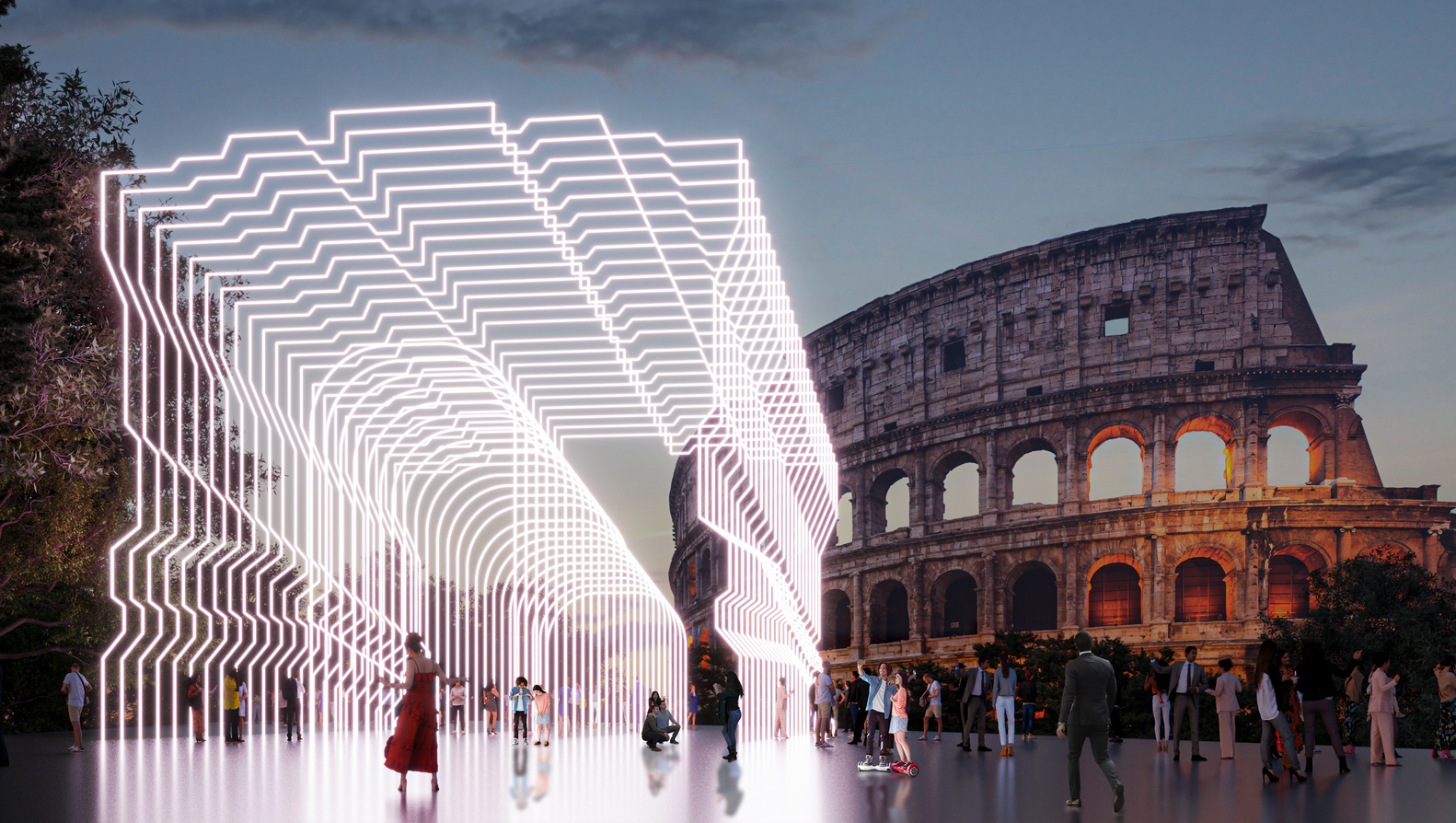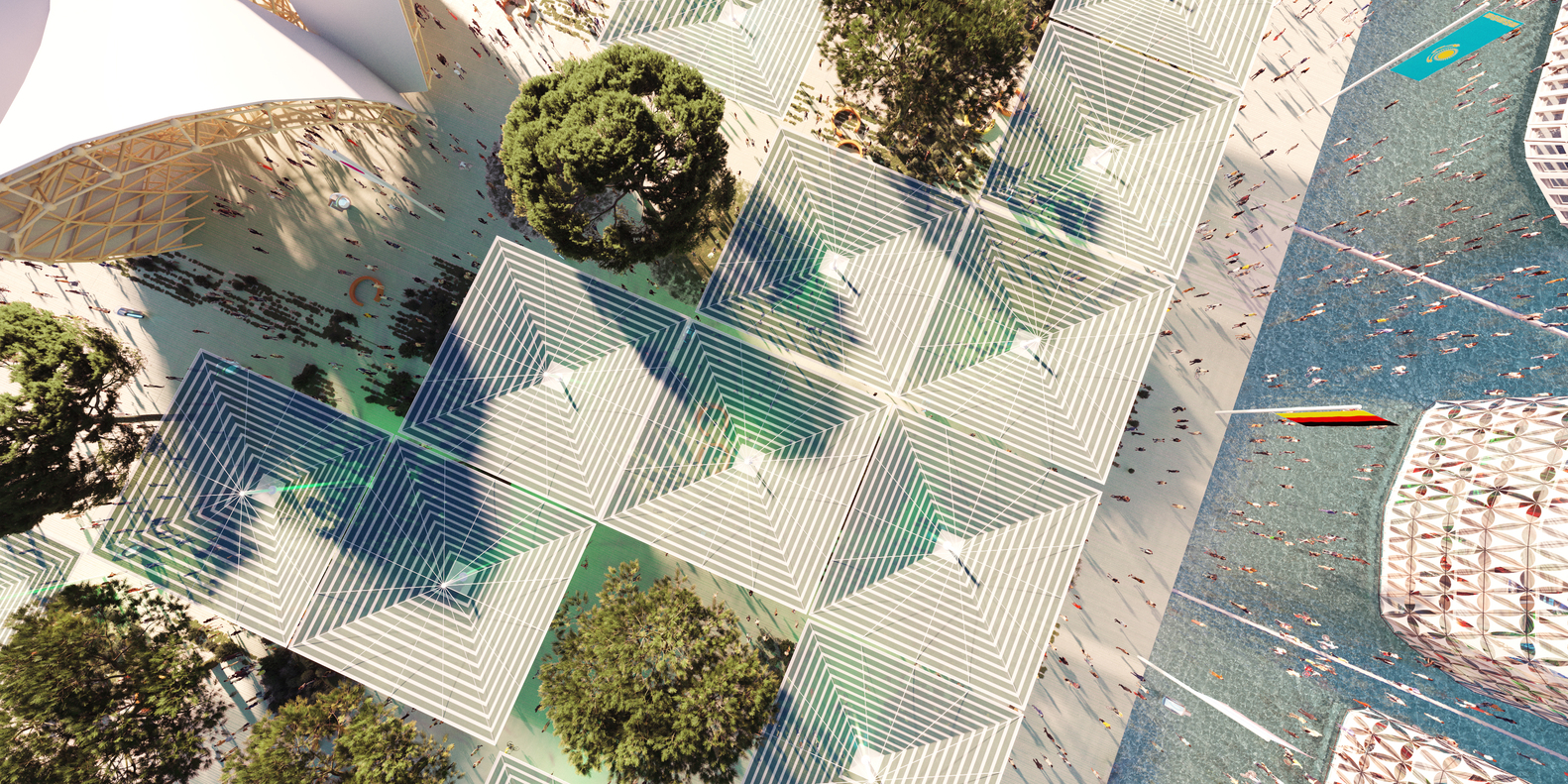Projects: Expo 2030, The worlds largest urban solar farm

Carlo Ratti Associati, architect Italo Rota and urbanist Richard Burdett have unveiled plans for the 2030 Rome World Expo. If successful, this will become the largest urban solar farm in the world.
The masterplan is based on the “Energy Sharing” principle, and all participating countries will be responsible for running the system. The design explores collective city-making processes, energy-sharing strategies and inclusive urban transformations.
The plan for the expo divides the area into three districts: ‘the city’ located in the west hosting Expo Village, an extension of the University of Tor Vergata’s campus. ‘The Boulevard’ is a central pedestrian axis connecting the pavilions. ‘The park’ is in the east and provides green spaces and a few thematic buildings.

Pictured as a mosaic from above, hundreds of square-shaped trees engineered to open and close their panels throughout the day will provide renewable energy and shade for this event. As part of the event’s cooling system, condensation will be generated by the Eco-system 0.0 pavilion.
The farm will cover an area of 150 000 square metres and will have a peak production capacity of 36 megawatts. The intention is for this to power the surrounding neighbourhoods with renewable energy as well as the Expo.
Located in Tor Vegata, the project will reinvigorate and decarbonize the area, which has been neglected in recent years. The pavilions are designed to be reusable and transform the area into an innovation district after the event.
Part of the revitalisation project includes repurposing the sports complex known locally as “le Vele”. Which will become a flagship pavilion hosting public events and showcasing the transformation of Tor Vergata.

The design proposal demonstrates what is now possible due to cheaper and more efficient solar panel technology. Photovoltaic technology has rapidly progressed in recent decades and is now becoming a cost-competitive clean energy alternative to fossil fuels.
In many countries, legislation is being implemented to require newly constructed buildings to be fitted with solar panels. Considering a project’s solar potential has become a standard process in sustainable design.
At Firstplanit we are building a platform to enable users to effortlessly evaluate and improve the carbon impact of building projects. That is why our experts are currently evaluating a series of commercial solar panels to add to our extensive product library.
